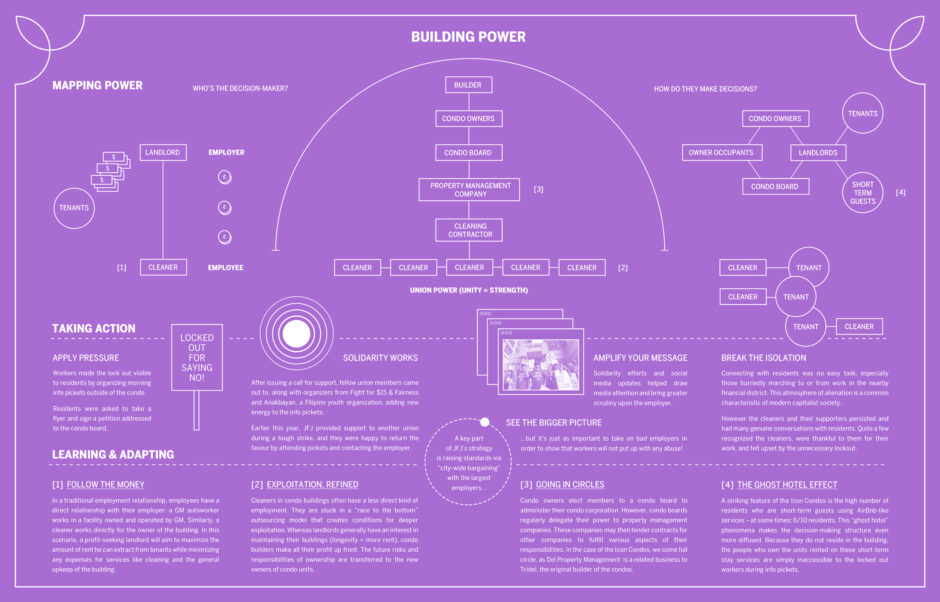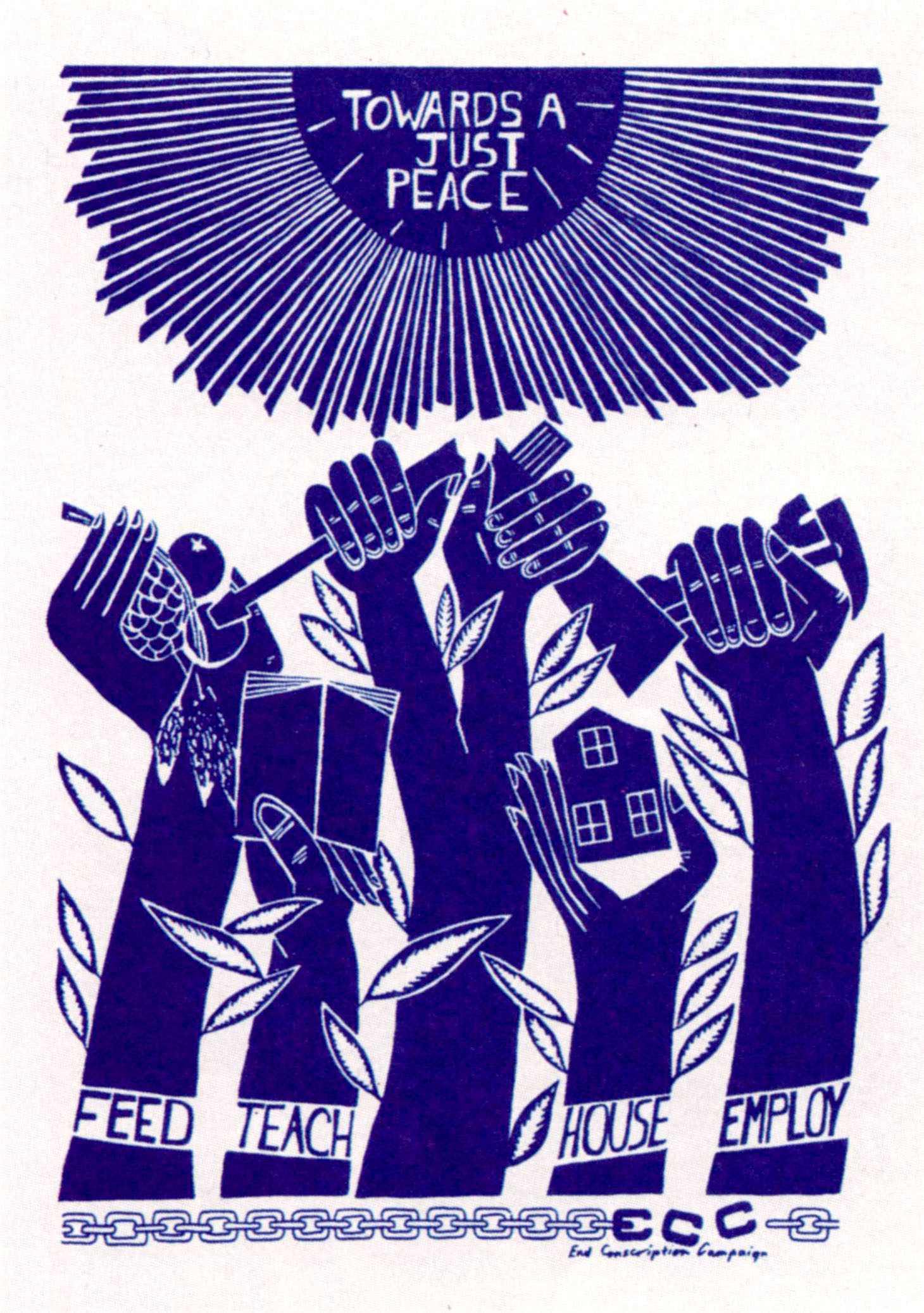
This zine was created as an experiment in labour education and mapping power relations.
The inspiration came from a picket line, which I walked many times with cleaners who had been locked-out by their employer.
The workers cleaned the Icon Condos in downtown Toronto, but their employer was not the condo corporation. I learned about their extremely convoluted employment relationship, deliberately designed to maximize their precarity.
Unlike a traditional employer-employee set-up, the cleaners have to work for whichever company wins the cleaning contract for the building (often the lowest bidder). The contract is awarded by the elected condo board upon the advice of a property management firm.
So who is the decision-maker here? And how can we apply pressure on them to do the right thing?
This question became even more complicated when I realized just how many residents of the Icon Condos were short-term guests with AirBnb-like services. Many of these travellers with suitcases stopped to speak with us, but as non-owners, they didn’t have voting rights or any influence with the condo board.
This zine is an initial effort to map (some of) these power relations and make them more understandable for those, like the cleaners and their union, who wish to challenge them.
Thanks first and foremost to the cleaners for fighting back and to the Justice for Janitors campaign.
Artist Colin Matthes graciously extended permission for me to use his crane illustrations. The quote from Joven and parts of Emma’s story are from Zach Ruiter’s reporting on the lockout in the NOW Magazine.
Building-Power



2 thoughts on “Mapping Power”
Very insightful mapping – I like this concept. Question: why isn’t the short-term vendor included on the map? AirBNB (assuming it’s them) has a number of pressure points, including reviews. They essentially created the ghost hotel market, making them a consequential participant. It would be interesting to understand the relationship between AirBNB and the Condo Board, as I know that some condo boards are opposed/hostile to non-resident ownership (sublets, etc.) while others are not.
Thank you LeMel and good point about including the short-term vendor given their large role in producing this dynamic. Yes, some condo boards here have taken a more active role and tried to ban AirBnB rentals and/or non-resident ownership. From what I recall in the case that inspired this diagram, it was a mix of AirBnB and a lesser-known Canadian copy, Red Maple Suites, or something to that effect. I think with the particulars of the campaign – a lockout – the focus was on more immediate targets – but I think you are right about needing to target AirBnB as part of broader organizing efforts to address these issues at their root given their large influence on the supply of rental housing.